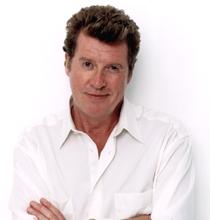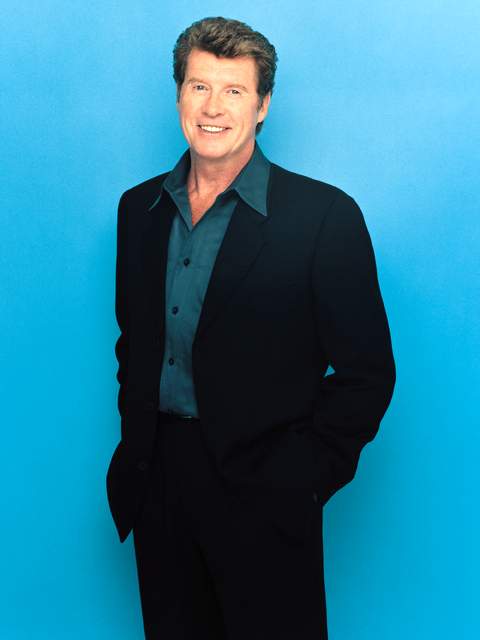 | Back Home |
 | Back to Michael |

 |  |
An important aspect of success in movies and plays is reviews because many people consult the reviews before they decide to see a movie or a play. Most of the reviews of Michael Crawford's movies do not seem very favorable. The Blockbuster Video Guide To Movies & Videos, says that Condorman is a "silly, tedious effort hampered by poor premise and so-so acting." Video Hound's Golden Movie Retriever 1996 says that Hello Dolly is a "lightweight story [that] needs better actors with stronger characterizations" (484). However, the Blockbuster Video Guide To Movies & Videos says that there is "splendid support by Silvers and Crawford" in A Funny Thing Happened on the Way to the Forum. However, most of the reviews of Michael Crawford's stage works are excellent. Michael Coveney, in the Financial Times in June 1981, said that "the audience responded with the most spontaneous standing ovation I have seen in a London theatre. Even allowing for First Night hysteria...Michael Crawford deserved nothing less" about Barnum. Martin Hoyle, in the Financial Times in March 1985, said that in Barnum "Michael Crawford...is tremendous. He hurls himself at the audience, juggles, walks the high wire, slides down ropes, sings and dances...He is inexhaustible, vital, and unabashedly, old-fashionedly charming: a real star." Richard Stayton, in the Herald Examiner on June 2, 1989, said that "[he] can't imagine seeing 'Phantom' without him [Michael Crawford]." Michael Coveney, in the Financial Times on October 10, 1986 says (about The Phantom of the Opera), "You would be well advised to have the Kleenex handy. This, I have to say, is due not just to the power of the music, which gathers irresistibly, but to the performance of Michael Crawford, reasserting his preeminence as the outstanding star of our musical theatre...sings like an angel. Crawford measures his gestures and emotional leaks to perfection."
While reviews are very important, the people that go to plays and movies want them to be interesting. In my personal experience, I have found that Michael Crawford's stage work is much more interesting than his work in film. I found that Condorman, Alice's Adventures in Wonderland, and Hello-Good-bye were relatively boring and hard to sit through [the first time I watched them]. If I were not an avid fan of Michael Crawford, I probably would have never watched these movies. However, I thought that Hello Dolly and A Funny Thing Happened on the Way to the Forum were easier to sit through but, they are not, in my opinion, the most interesting movies that I have ever seen. Since I am going on personal experience here, I have only seen two of Michael Crawford's plays (and only one live). I thought that Barnum was very interesting. Michael Crawford was hilarious in this role. EFX is the only one of Michael Crawford's stage works that I have seen live. This was a very interesting show. It was very fast paced and it was almost too short in my opinion.
Two very important aspects of Michael Crawford's talent are his emotions and his facial expressions. His emotions are always very apparent in both movies and plays but, probably more apparent in plays. In Hello-Good- bye, when Crawford's lover leaves him the sadness is easily seen in his facial expressions and in his voice. However, in Barnum, when Barnum's wife dies, the sadness is seen in his facial expressions (mainly because of the tears running down his face) and in the trembling of his voice. I find it extremely hard not to cry with him during this scene. The greatest challenge in conveying his emotions probably came in The Phantom of the Opera. In this play, Crawford's face is completely covered with latex and then a mask on top of that. To convey the Phantom's pain and anger, "he makes artful use of his body, employing the arch of his back, the strong set of his stance and dramatic gestures of hands and fingers to express the tormented character within" (Kilian 2). Richard Christiansen, in the Chicago Tribune, says that "his [Crawford's] is a performance of grand proportions that never tips into grandiosity. His gestures are big, and his emotions are played full out, as befitting a 19th Century style of operatic acting, but he invests his stiff, painful walk with noble grace, and his final cry when he realizes that he has lost Christine forever is unforgettably eerie. Through such methods he makes palpable the agony that the detailed make-up of his scarred face depicts (3).
Another important aspect of Michael Crawford's talent is his stunt work. His stunts are more impressive on the stage than on film which is probably because of the restrictions on film actors and the use of stunt doubles in the movies. Most of the stunts that Crawford does in his movies usually involve clumsiness. However, in Hello-Good- bye, he drives a car into a pool and spends several minutes underwater. In Condorman, he plays a comic book author who does not let his main character do anything that he himself cannot do. So, Crawford wears a pair of wings and glides off the Eiffel Tower straight into a pond below. However, on the stage, stunt doubles are rarely used so Crawford must perform all the stunts himself. In Barnum, he can be seen "dangling from a 30-foot rope and tightrope walking" (Yarrow 1). In Phantom of the Opera, he did all of his stunts while wearing contact lenses that blurred his vision. "His blurred vision makes it tricky to disappear through a trap door, cling precariously to a flying gilded angel or scurry down a 35-foot backstage ladder from a perch near the theater's ceiling" (ibid.).
The most important aspect of Michael Crawford's talent is his singing. Singing is something that really differs between his movies and plays mainly because most of his movies were made in the 1960's and 1970's and he did not start seriously singing and start training his voice until the mid to late 1970's (Morrison 1). He did, however, sing in Hello Dolly and A Funny Thing Happened on the Way to the Forum but his voice is not as beautiful and powerful as it is now because it was not well trained. In The Phantom of the Opera, Michael Crawford "had to train for three months, to expand to a full-throated vocal range running from tenor to falsetto" (Kilian 1). So, had he had the vocal training he has now, the singing in his movies would have been much better than what it was in Barnum, The Phantom of the Opera, and EFX.
On the basis of reviews, whether the work was interesting, the emotions and stunts, and his singing, it is obvious that Michael Crawford's stage work is much better than his film work. With a film version of The Phantom of the Opera planned with Michael Crawford as the star, perhaps he can prove that he can be equally good on film as he is on stage.
Works Cited
- Alice's Adventures in Wonderland. Videotape. Dir. William Sterling. With Michael Crawford, Peter Sellers, Dudley Moore, and Fiona Fullerton. The Congress Video Group, 1972. 96 min.
- Barnum. Videotape. Dir. Terry Hughes. With Michael Crawford. Waterbearer Films, 1986. 113 min.
- Blockbuster Video Guide to Movies and Videos. CD-ROM. Blockbuster Entertainment, 1995.
- Christiansen, Richard. "Phantom of the Opera Here At Last, the Show Is As Spectacular As the Hype." Chicago Tribune 27 January 1988. Online. America Online. 27 March 1996.
- Condorman. Videotape. Dir. Charles Jarrott. With Michael Crawford, Oliver Reed, and Barbara Carrera. Walt Disney Home Video, 1981. 90 min.
- Connors, Martin, Julia Furtaw, and James Craddock, eds. Video Hound's Golden Movie Retriever 1996. Detroit: Visible Ink Press, 1996.
- EFX. With Michael Crawford. MGM Grand, Las Vegas. 24 July 1996
- A Funny Thing Happened on the Way to the Forum. Videotape. Dir. Richard Lester. With Zero Mostel, Phil Silvers, Jack Gilford, Buster Keaton, and Michael Crawford. MGM/UA Home Video, 1966. 100 min.
- Hello Dolly. Videotape. Dir. Gene Kelly. With Barbra Streisand, Walter Matthau, and Michael Crawford. 20th Century Fox Home Video, 1969. 146 min.
- Hello-Good-bye. Dir. Jean Negulesco. With Michael Crawford, Curt Jurgens, and Genevieve Gilles. 20th Century Fox, 1970.
- Kilian, Michael. "Phenom of the Opera Michael Crawford Isn't About to Disappear From His 'Phantom' Role." Chicago Tribune 21 August 1988. Online. America Online. 27 March 1996.
- Morrison, Bill. "Phantastic 'Phantom' Unmasked." News and Observer. 1991.
- Yarrow, Andrew. "Crawford As 'Phantom' Is Dazzling." Chicago Tribune 4 February 1988. Online. America Online. 27 March 1996.
*Photos from Atlantic Records.